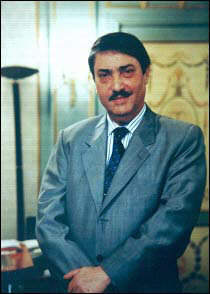 ALGERIA: The New Generation ALGERIA: The New Generation |
 INTRODUCTION INTRODUCTION |
Important events have marked the Algerian economy during the past year, most important being the implementation of President Bouteflika's support program for economic stimulation, law reforms on investment and privatization, the signing of the association agreement with the European Union and the resuming of negotiations to join the World Trade Organization. This emphasizes Algeria's firm commitment for a market economy. According to Mr. Benflis, Head of Government of the People's Democratic Republic of Algeria: "the program of the new government, recently adopted by Parliament is primarily derived from President Bouteflika's program, which revolves around two main ideas: deepening the process of economic reforms and modernizing the functioning of the different structures of the government to answer the needs of the citizens for better governance, more freedom, democracy and a more efficient sharing of national wealth. The government's action falls within this framework and, as a last resort, aims at reinforcing the notion of citizenship by promoting individual and collective liberties thus promoting economic growth in Algeria." Indeed, the government has taken the first measures, which constitute the next logical step, towards macro-economic stabilization.

This started during the application of the structural adjustment program (1994-1998) and is part of a budget relaxation and investment promotion. The economic stimulation program is set for the 2001-2004 period with a total envelope of 7 billion Dollars, in mostly for the realization of infrastructures and various equipment. Algeria's positive financial situation is thus put to profit. Thanks to the healthy oil market during this same period, foreign currency reserves increased to 18 billion Algerian Dinars, inflation however, which was brought down to 0.9% in 2000, went up by 2 points in 2001. However, economic growth remains weak at only 2.3%, despite the fact that international financial institutions recommend a 6% to 7% growth rate, sustained for a number of years to solve Algeria's economic problems.
|
After a decade of political instability, economic crises and security problems, Algeria is slowly opening to the world. Almost 75% of Algeria's population is less than 35 years old, however and despite this powerful resource, a number of problems still remain: a 30% unemployment rate, a housing deficit of 2.1 million units, an illiteracy rate of 23% and most importantly a very low purchasing power with minimum salary equal to 100USD (8000 Algerian Dinars).We might as well say that everything remains to be done, but Algeria can count on its countless potentialities to solve these shortcomings. Today, after 3 decades of centralized economy, the government is no longer able to contain the social demand. Despite good financial performances, the Government must adapt the economic environment to the market rules. The objective of what is known as the second generation reforms, which are part of the current phase, is to render Algeria a competitive country with freedom of initiative and investment.
It is, however, a difficult challenge without considerable direct foreign investment. It is in this perspective that the support program for economic stimulation aims at offering more infrastructures for productive investment (public works, electric power, hydraulics, etc). Parallel to this, two new laws pertaining to investment and privatization have been passed in August 2001, which include private national and foreign capital incentives and flexible tax and administrative constraints. The liberalization process has had encouraging results, namely in the services and transport sectors.
These mutations correspond to a new stage and a change in attitudes, namely with the development of the private sector. It is dynamic, open and most importantly, organized, which is why the private sector has overtaken public companies. It generates more than 50% of the wealth, not including hydrocarbons, and includes more than two thirds of the labor market. According to Mr. Benflis: "any observer aware of the Algerian economic situation can be a witness to the resurgence these past years of a corporate culture and a new generation of managers who are willing to impose Algerian products in the world commercial circuits, rejecting inward-looking policies". The major challenge for this new generation of managers is to attain a high rate of economic growth to enable progressive reduction of unemployment. |

